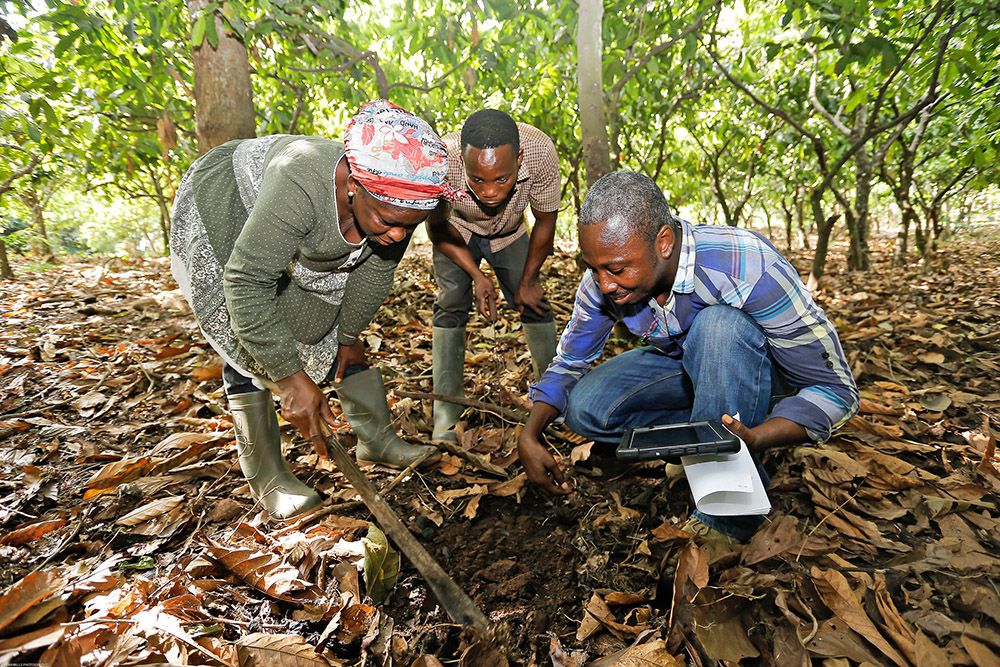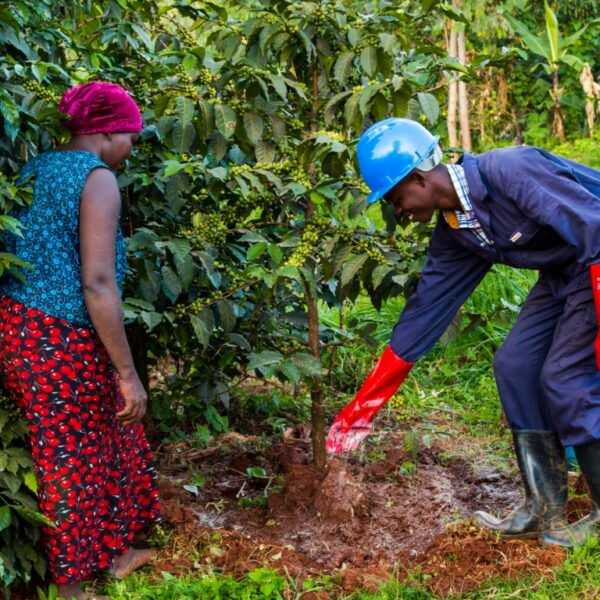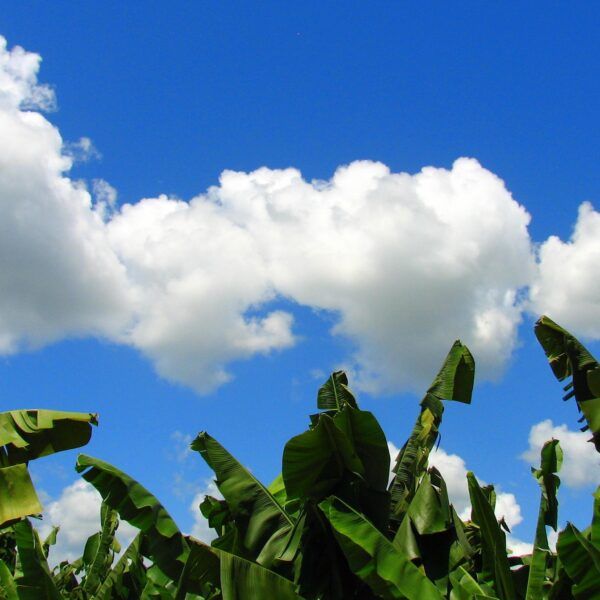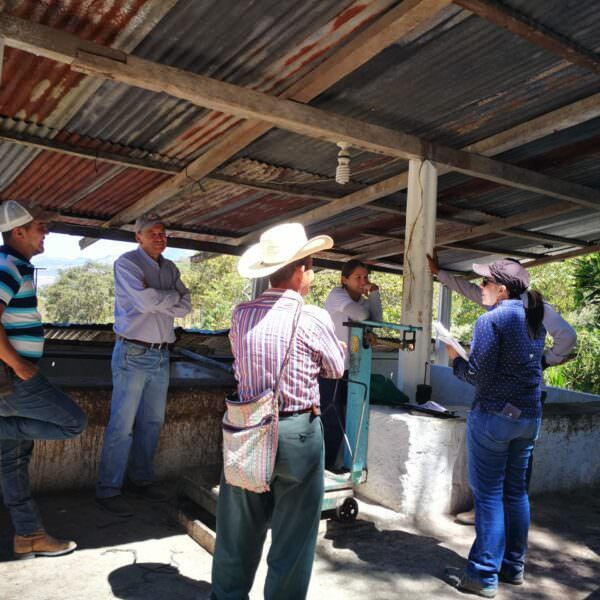Early Feedback on the New Certification Program: Kyagalanyi Coffee Shares Their Implementation Experience
Find out what Ugandan coffee exporter, Kyagalanyi Coffee, had to say about the new program—from the improvements to the challenges.
Home / Business / Certification / Page 3
Certification has had a huge impact in bringing sustainability to the forefront of business thinking, but it must continue to evolve to provide more value to farmers and companies and ensure that people and nature can thrive in harmony.
That's why the Rainforest Alliance launched its new Certification Program, which entered into force in July 2021. The Sustainable Agriculture Standard, along with its assurance and technology systems, are data-powered, and based on the principles of continuous improvement, risk-based assurance, contextualization, and shared responsibility. This is how we can deliver more value to the two million farmers and thousands of businesses that use Rainforest Alliance certification to drive more sustainable agricultural production and responsible supply chains.

The certification program is part of the Rainforest Alliance’s strategy to drive sustainability at scale in the sectors in which we operate through interconnected interventions supporting certification, tailored supply chain services, landscapes and communities, and advocacy.
Key priorities of our cocoa strategy are assurance, shared responsibility, supply chain transparency, and profitability and resilience.
How we have tailored the implementation and verification of standards requirements on child labor and forced labor to the risk exposure of each farm.
Our shared responsibility approach aims to distribute benefits and costs of certification more evenly between farmers and companies.
Begin your journey of certification with the Rainforest Alliance.

Find out what Ugandan coffee exporter, Kyagalanyi Coffee, had to say about the new program—from the improvements to the challenges.

After teaming up for an early implementation pilot of our strengthened certification program, both Finca Esmeralda and the Rainforest Alliance took away learnings that will contribute to a more sustainable banana sector.

Rainforest Alliance certification is carried out by our authorized certification bodies. Find an authorized certification body in your county.

SA-P-SD-9 The objective of this policy, alongside the 2020 Rainforest Alliance Sustainable Agriculture Standard requirements, is to support producers in their journey to phasing out the use of HHPs. The Exceptional Use Policy grants limited exceptions for the use of certain agrochemical compounds contained in the Rainforest Alliance list of prohibited pesticides in specific scenarios […]

The crop list presents all the possible certified products in Rainforest Alliance. This document was previously part of Annex S13 (GMR), but now it was separated for ease of use. In case of any questions, please reach out to customersuccess@ra.org.

This sheet provides guidance on recommended verification methods per requirement that authorized certification bodies can use to assess compliance for the Rainforest Alliance’s 2020 Farm and Supply Chain Standards.

The new ‘Policy on WOs’ has been developed to align the Freedom of Association (FoA) requirements (5.2.1; 5.2.2; and 5.2.3) of the Rainforest Alliance 2020 Sustainable Agriculture Standard to the context of banana and pineapple farming operations in Costa Rica. It aims to recognize, in equal conditions, benefits to all Workers’ Organizations (WO), and access […]

The European Union (EU) has introduced the EU Deforestation Regulation (EUDR), including requirements on deforestation for some products that are imported into the EU. Rainforest Alliance certified products currently impacted include cocoa and coffee. This document contains additional requirements to cover aspects of the EUDR that were not fully aligned in addition to the RA […]

The UML is used across the palm industry and has become a trusted reference to identify mills as part of supply chain mapping and traceability.... Continue Reading